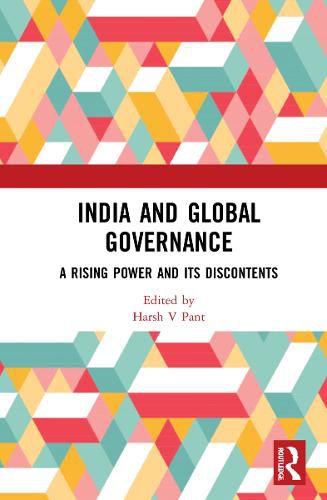Readings Newsletter
Become a Readings Member to make your shopping experience even easier.
Sign in or sign up for free!
You’re not far away from qualifying for FREE standard shipping within Australia
You’ve qualified for FREE standard shipping within Australia
The cart is loading…






This volume explores India’s role in the global governance architecture post-Cold War. It shows how, with a rise in India’s capabilities, there is an expectation from its external interlocutors that New Delhi ought to play a larger global role. As Indian policymakers redefine their engagements in the global policy matrix, the chapters in the volume analyse India’s role as a challenger and a stakeholder in world politics; its uneasy relationship with Western liberal democracies; and its role in shaping new structures of global governance. The volume focuses on a host of critical issues, including nuclear policy, climate action politics, India’s bid for a permanent seat at the UN Security Council, humanitarian interventions, trade governance, democracy promotion, India’s engagement with other emerging powers in platforms such as the BRICS, the changing dynamics with its neighbours, and maritime governance.
A timely reimagining of global politics, this book will be of great interest to scholars and researchers of politics and international relations, climate change, military and strategic studies, economics, and South Asian studies.
$9.00 standard shipping within Australia
FREE standard shipping within Australia for orders over $100.00
Express & International shipping calculated at checkout
This volume explores India’s role in the global governance architecture post-Cold War. It shows how, with a rise in India’s capabilities, there is an expectation from its external interlocutors that New Delhi ought to play a larger global role. As Indian policymakers redefine their engagements in the global policy matrix, the chapters in the volume analyse India’s role as a challenger and a stakeholder in world politics; its uneasy relationship with Western liberal democracies; and its role in shaping new structures of global governance. The volume focuses on a host of critical issues, including nuclear policy, climate action politics, India’s bid for a permanent seat at the UN Security Council, humanitarian interventions, trade governance, democracy promotion, India’s engagement with other emerging powers in platforms such as the BRICS, the changing dynamics with its neighbours, and maritime governance.
A timely reimagining of global politics, this book will be of great interest to scholars and researchers of politics and international relations, climate change, military and strategic studies, economics, and South Asian studies.